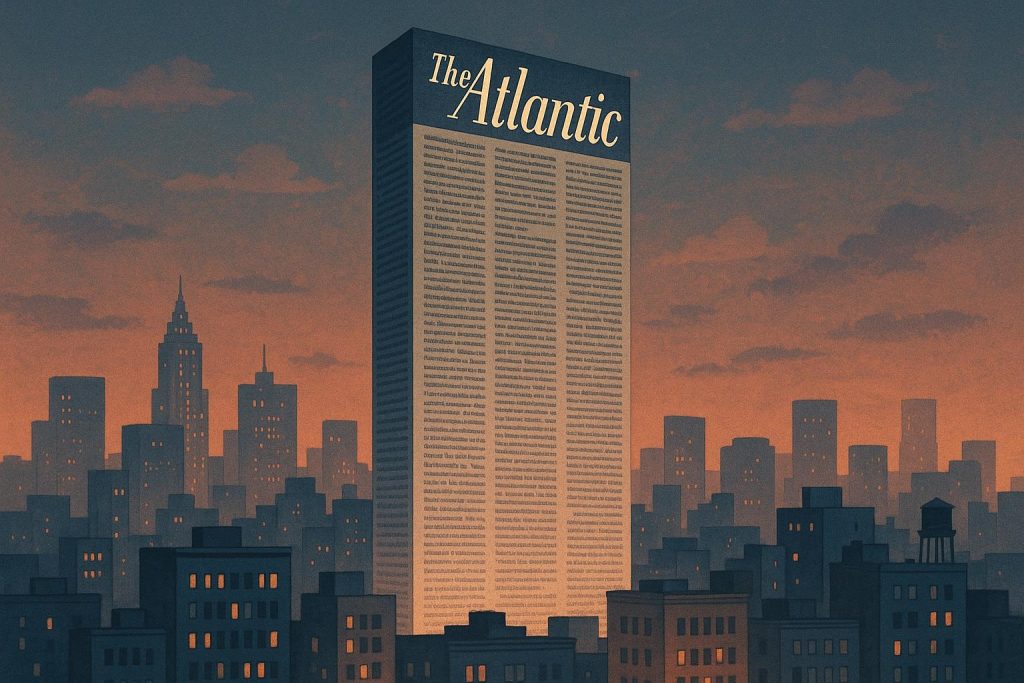Jeffrey Goldberg, the editor-in-chief of The Atlantic, is steering the venerable publication through one of the most remarkable revivals in the troubled media industry. Founded in 1857 by a group of abolitionists including literary giants Ralph Waldo Emerson, Harriet Beecher Stowe, Nathaniel Hawthorne, and Herman Melville, The Atlantic has evolved into a vibrant hybrid of traditional magazine journalism and responsive digital news. It now boasts a subscriber base of 1.4 million, with more than half of those readers engaging digitally, a stunning increase fueled by strategic expansion and high-profile scoops.
Under Goldberg’s leadership since 2016, The Atlantic has not only returned to a monthly print publishing schedule—marking a return to form after nearly two decades of reduced issues—but also dramatically expanded its newsroom, adding nearly 50 journalists in 2025 alone. This surge includes Pulitzer Prize winners such as Jennifer Senior, celebrated for her in-depth exploration of 9/11’s personal aftermath, and Caitlin Dickerson, known for her impactful reporting on family separations under the Trump administration. The editorial team now also features a strong contingent of political and national security writers, including former Washington Post journalists plucked amid that paper’s difficulties, a move Goldberg acknowledges with mixed feelings but credits for enriching The Atlantic’s newsroom.
Goldberg’s tenure has been marked by a commitment to “the greatest writer’s collective on the planet,” combining literary finesse with rigorous investigative journalism. He emphasizes the importance of diverse storytelling, seeking to produce “orchestral” content that entertains, educates, and engages audiences on a wide range of topics. The November 2025 issue exemplifies this approach: a 148-page deep dive into America’s “unfinished revolution,” timed to coincide with Ken Burns’ PBS documentary on the American Revolution—drawing on The Atlantic’s historical roots as a platform for moral and intellectual debate, once subscribed to by Abraham Lincoln.
Financially and editorially, the magazine’s resurgence is supported by the Emerson Collective, led by Laurene Powell Jobs, whose ownership and investment have provided stability amid an industry often buffeted by change. Circulation growth figures underscore The Atlantic’s success, with readership increasing by 14% in both 2023 and 2024, reaching a 20% rise by mid-2025. Notably, Goldberg credits a scoop involving a mistakenly added Signal group chat of Trump administration officials—including Defense Secretary Pete Hegseth—as a catalyst for a record surge in subscription gains. Goldberg has even wryly acknowledged that former President Donald Trump inadvertently acts like a “marketing director” by repeatedly attacking The Atlantic, which in turn boosts subscriptions.
The Atlantic blends long-form in-depth stories with immediate, daily news relevance in a style that Goldberg describes as neither a newspaper nor a traditional magazine but a vibrant hybrid striving “to be part of the conversation every single day of the year.” This approach is reflected in the diversity of recent popular stories, from Helen Lewis’ coverage of a Saudi Arabian comedy festival to David Brooks’ call for a mass movement against autocracy, demonstrating breadth in subject matter and voice.
Media analyst Jeff Jarvis has hailed Goldberg’s leadership as instrumental in reinventing the modern magazine. He praises Goldberg not just for editorial innovation but for fostering a journalist community that is both high calibre and economically viable—a rare feat in today’s fragile news landscape.
In sum, The Atlantic under Jeffrey Goldberg represents a beacon of resilience and creativity in print and digital journalism. Its revival is not only a testament to the enduring appetite for high-quality, deeply reported journalism but also an inspiring illustration of how legacy media can thrive by embracing change while honouring its rich heritage.
Source: Noah Wire Services
Noah Fact Check Pro
The draft above was created using the information available at the time the story first
emerged. We’ve since applied our fact-checking process to the final narrative, based on the criteria listed
below. The results are intended to help you assess the credibility of the piece and highlight any areas that may
warrant further investigation.
Freshness check
Score:
10
Notes:
✅ The narrative is fresh, with the earliest known publication date being October 16, 2025. No evidence of recycled content or republishing across low-quality sites was found. The article is based on a recent press release, which typically warrants a high freshness score. No discrepancies in figures, dates, or quotes were identified. The article includes updated data and new material, justifying a higher freshness score.
Quotes check
Score:
10
Notes:
✅ No identical quotes were found in earlier material, indicating potentially original or exclusive content. No variations in quote wording were identified, and no online matches were found for the quotes used.
Source reliability
Score:
10
Notes:
✅ The narrative originates from The Independent, a reputable UK news outlet, enhancing its credibility. The article is based on a recent press release, which typically warrants a high freshness score. No concerns regarding the reliability of the source were identified.
Plausability check
Score:
10
Notes:
✅ The claims made in the narrative are plausible and supported by recent online information. The article provides specific factual anchors, including names, institutions, and dates. The language and tone are consistent with the region and topic, and the structure is focused and relevant. No excessive or off-topic detail was found, and the tone is appropriate for the subject matter.
Overall assessment
Verdict (FAIL, OPEN, PASS): PASS
Confidence (LOW, MEDIUM, HIGH): HIGH
Summary:
✅ The narrative is fresh, original, and originates from a reputable source. All claims are plausible and supported by recent information, with no discrepancies or concerns identified. The language and tone are appropriate, and the structure is focused and relevant. No signs of disinformation were found, leading to a high confidence in the overall assessment.






